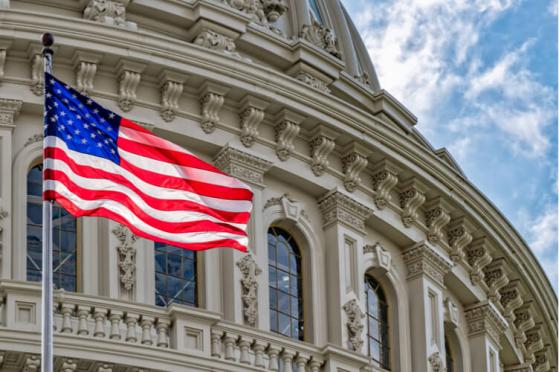An Achilles heel for members of the U.S. Congress has been how to deal with this new-fangled space called cryptocurrency. Several experts and regulatory heads have been paraded before members to try to explain the space. Now, members have been supplied with their own bible - of sorts.
In a first, the annual Joint Economic Report includes a comprehensive section on cryptocurrencies. It details what lawmakers should focus on as they grapple with how to regulate cryptocurrencies, and make the most of the technology that underpins most of them – Blockchain.
Wild ride
Over the past weekend, we watched Bitcoin rise more than $700 in three hours, after nearing $7,500, a low we hadn’t seen in weeks. It began to crumble last week when several negative news happenings rocked the space, including some from Google (NASDAQ:GOOGL) about it readying to stop allowing for crypto-related ads.
Then, on Monday, based on the comments from one key player, Bitcoin rallied almost a $1,000, and sat around $8,300 at the time of writing Monday. (New York time). The comments came from Financial Stability Board chairman Mark Carney who said digital assets are too small and limited to pose any real threat to the stability of the global financial system, we reported to you.
It’s these types of wild price swings that give many pause, especially lawmakers. In this 2018 economic report, it’s noted that lawmakers trying to make sense of the volatility should understand that these value movements do not result from the variability of their supplies. The value fluctuations of digital currencies stem from the demand side, according to the report.
Whether digital currencies hold their value will depend upon whether they offer benefits in terms of ease of use and accessibility, low transaction costs, security, anonymity, and other considerations in sufficient degree relative to conventional currencies and other stores of value such as gold.
Blockchain for non-financial uses
Stressed in the report is that while the role of digital currencies is important to understand, just as important is Blockchain.
One area of particular interest is healthcare. The report points to the U.S. Department of Health and Human Services as a prime example of an agency that could benefit from Blockchain.
For cryptocurrencies and Blockchain to further thrive, policymakers will need collaborative and innovative solutions that set the rules of the game without overly prescriptive regulations that constrain this emerging technology from reaching its full potential.
The report pointed out how lawmakers also need to look at how Blockchain can be incorporated into the management of electrical grids to help utility companies manage global supply chains. For this purpose, the report’s drafters said “the potential for Blockchain is truly revolutionary.”
For example, power plants could record the electricity they generate on a Blockchain as available for purchase. Utilities could then purchase the power, and the Blockchain would record the purchase and the transfer. Finally, the meters of end users would communicate with the utility to purchase portions of the power.
It’s noted that these steps are already in place, but if a distributed ledger was also in place, processes could be streamlined, and delivery could be sped up. This would lead to lower costs and power savings.
From beginning to end
Lawmakers should also look closely at the beneficial ways Blockchain can be used in shipping. We told you about IBM (NYSE:IBM) working with container shipping giant Maersk to create a Blockchain-based platform that will help speed up processing and cut costs. This effort was mentioned in this economic report.
For shipping, the burden relates to the amount of paperwork typically involved. Not only is the amount of paperwork great, but the records are rarely compatible across differing systems, especially when a distributor acts as a middleman between the two, according to the report.
Blockchain offers a solution.
Conclusion
This joint report should help lawmakers better understand which areas of cryptos should receive the most attention. They’ve recently shown they are eager to address regulatory issues, but they also appeared to be distracted by the varying happenings about the space.
We’ll keep you posted about which, if any, of the areas of this report, they move upon.
This article appeared first on Cryptovest
